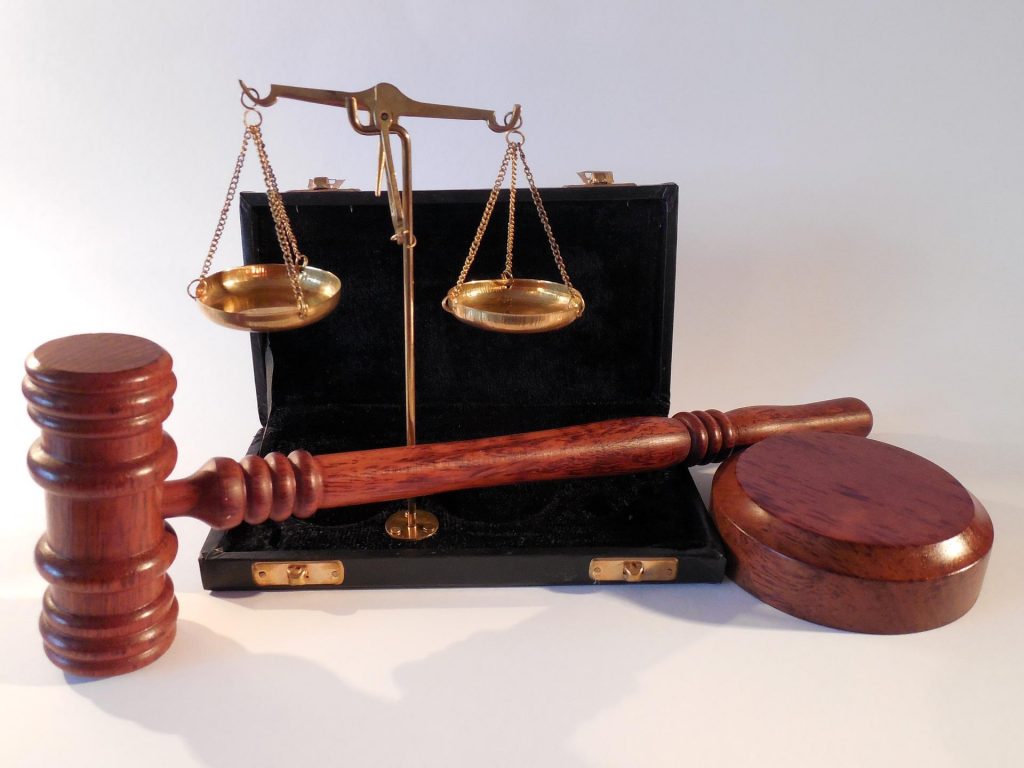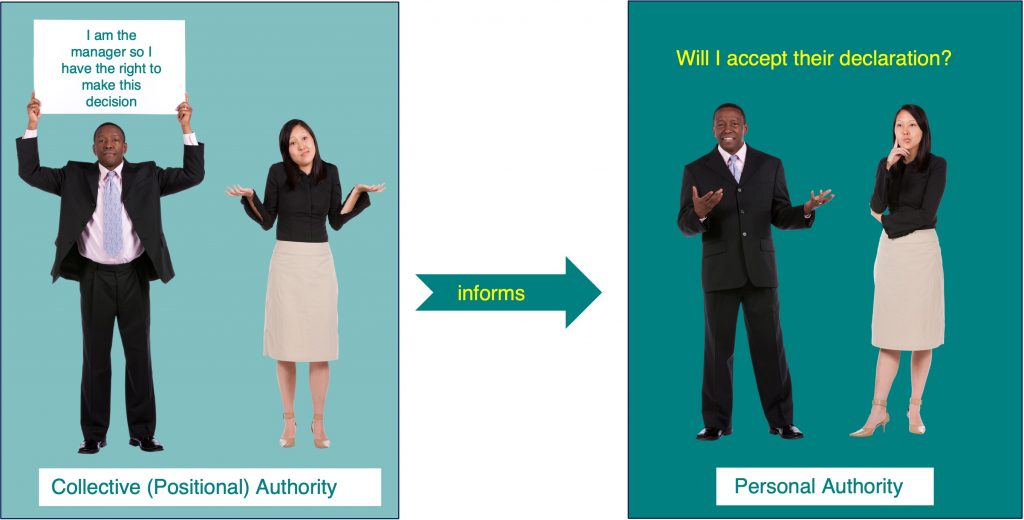
In order to understand the role of authority, it is useful to develop an understanding of what has us declare authority for others or ourselves in the first place.
To begin with, we can distinguish two types of declarations of authority – ‘collective authority’ and ‘personal authority’.
‘Collective authority’, also known as ‘positional authority’, is declared by a community of people and is associated with a specific role in our social structures such as a doctor, manager, judge or a priest. As such, it is domain specific. For example, a person who is a judge has the authority of a judge as long as they hold that role. When they leave the role, they lose their authority in the eyes of the community and are no longer able to make valid judicial declarations.
Looking at this in an organisational context, we see that various people within an organisational structure are given collective authority. Depending on the person’s role, they are able to make certain declarations within and for the organisation. The more extensive the domains of a person’s collective authority, the more they are seen as being in the role of an organisational leader. A visual representation of an organisation’s collective authority can be seen in a diagram of its organisational structure. The higher up the organisational tree, the more extensive the domains of collective authority and the more expansive the capacity to make declarations that will be valid for the organisation as a whole.
‘Personal authority’ is declared by an individual when they validate any declaration to which they listen.
Such declarations of authority are informed by the declarer’s collective authority where it exists, but this may not always mean someone with collective authority is given personal authority by an individual. When this occurs, there is an obvious clash. If the person with the collective authority persists in their declaration, the dissenting individual will almost certainly have to back down or face some action by the collective.
From a leadership perspective, when someone has collective authority, their ability to make declarations that generate effective action in line with the declaration is enhanced when they are willingly given personal authority by others.
Power
The distinction made between authority and power is often confusing. In this work, there is a distinction between the two. As has been said, authority is a declaration of the right of yourself or another to author valid declarations that concern you.
On the other hand, power is an assessment we make of the extent of a person’s authority in the world at large and therefore their capacity to generate action. When assessing a person’s power, we are judging both their collective authority and the authority we assess they are given by ourselves and others. The greater we assess the extent of their authority, the more powerful we see them to be.
Awarding Personal Authority
Whereas collective authority should be readily identifiable within social structures, the reasons why an individual declares their personal authority in response to a declaration is less defined.
To understand how this occurs, let us look at authority from two perspectives – the speaker and the listener.
When making a declaration, the speaker will generally want others to validate the declaration they are making. In seeking to obtain personal authority from others, they will use two key paradigms:
- The Paradigm of Control
- The Paradigm of Trust
From the listener’s perspective, they interpret the declaration within their existing context created by the current way of being. Individuals will weigh up how a declaration relates to their future and what they might lose or gain as a result of validating the declaration. It should be pointed out here that this is not a rational assessment and often involves transparently taking care of our safety and other core concerns.
When dealing with a declaration, we can:
- Accept the declaration unwillingly because we feel compelled to do so – we see no other choice and feel pressured to take it;
- Accept the declaration willingly because we trust the person making the declaration. This assessment of trust can be grounded or ungrounded and independent of the speaker’s paradigm (control or trust); or
- Not accept the declaration and deal with the consequences of that rejection.
